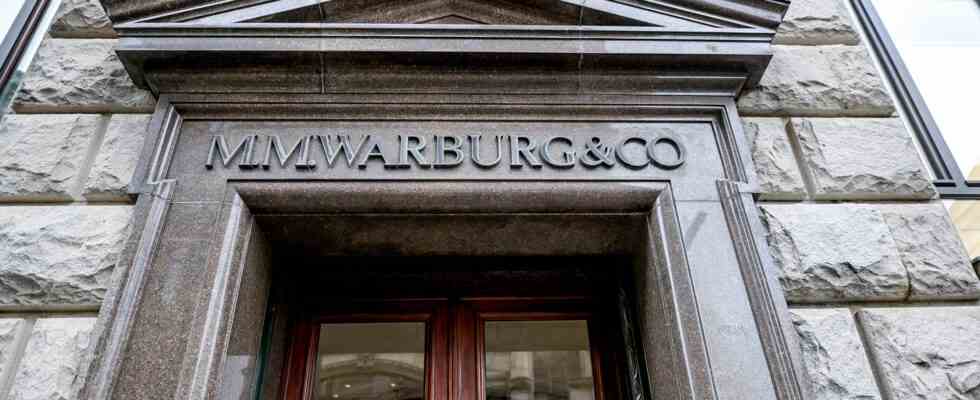Status: 04/29/2022 1:05 p.m
A constitutional complaint by the private bank MM Warburg against the confiscation of 176 million euros in connection with cum-ex transactions has failed. The reason for this is in itself.
The Warburg-Bank has to repay 176 million euros to the state treasury because of its participation in cum-ex transactions. The Federal Constitutional Court in Karlsruhe did not accept the institute’s constitutional complaint for decision. Today it declared the retrospective confiscation of the illegally obtained money to be permissible, although the claim was statute-barred under previous law.
Plain text from Karlsruhe
Due to overriding concerns of the common good, retroactivity is exceptionally permissible and compatible with the Basic Law. The legislator wanted to make it clear that criminal offenses are not worthwhile, according to the decision of the second chamber of the second senate of April 7 (Az. 2 BvR 2194/21). “This goal is legitimate and paramount.” The general interest is more important than that of those affected to be allowed to keep assets obtained through tax offenses after the tax statute of limitations has expired.
After a change in the law at the end of 2020, illegally obtained funds can be confiscated despite the statute of limitations. According to the Constitutional Court, a transitional provision also allows this for acts committed before December 29, 2020 – especially for serious cases of large-scale tax evasion.
According to private bank MM Warburg, the decision has no economic impact because they all asserted Have already settled tax claims in 2020.
Creative but illegal method
In “cum-ex” deals, investors used a loophole in the law to cheat the state out of large amounts of money over a period of years. Around the dividend record date, several participants pushed shares with (“cum”) and without (“ex”) dividend rights back and forth. As a result, tax offices reimbursed capital gains taxes that had not been paid at all. The state suffered billions in damage. According to the information, Warburg Bank was involved in the stock transactions between 2007 and 2011.
In 2012, the tax loophole was closed. Several public prosecutors and courts nationwide have been investigating for years to clear up one of the biggest tax scandals in German post-war history. Hundreds of suspects are being investigated nationwide, and the alleged key figure Hanno Berger has been on trial in Bonn for several weeks.

